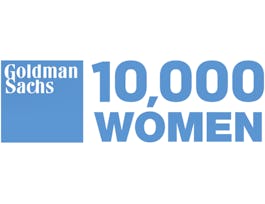Pour lutter contre la pauvreté dans le monde, n'avons-nous vraiment pas assez de ressources ou n'avons-nous pas les bons outils pour allouer nos ressources ?
Les outils financiers, lorsqu'ils sont appliqués correctement, peuvent permettre d'obtenir des résultats sociaux et environnementaux. Ce cours est conçu pour vous donner la capacité d'élaborer des stratégies de financement innovantes qui visent des résultats tels que l'inclusion financière, l'accès à l'énergie et l'accès à l'éducation. Le processus de financement innovant comporte cinq éléments clés. Il commence par l'identification des résultats que vous cherchez à atteindre et passe ensuite à l'analyse préalable de votre domaine d'intervention en utilisant des techniques telles que la réflexion sur la conception pour s'assurer que vous concevez avec l'utilisateur final. Ensuite, vous devez cartographier toutes les ressources disponibles pour votre résultat, puis découvrir les possibilités d'augmenter ces ressources grâce à l'innovation des modèles d'entreprise, aux partenariats multipartites et aux structures financières novatrices. Enfin, la dernière étape consiste à rassembler tous ces éléments pour concevoir une stratégie de financement innovante. Chaque semaine approfondit un élément du processus en utilisant des exemples et des études de cas réels d'entrepreneurs sociaux, d'organisations à but non lucratif, de bailleurs de fonds de développement, d'investisseurs d'impact, de gouvernements, de fondations, etc. Pendant cinq semaines, vous découvrirez de nouveaux types de création de revenus, des approches de financement, des modèles d'entreprise et des partenariats. À la fin du cours, vous aurez la capacité de pirater la finance pour le changement social.




















